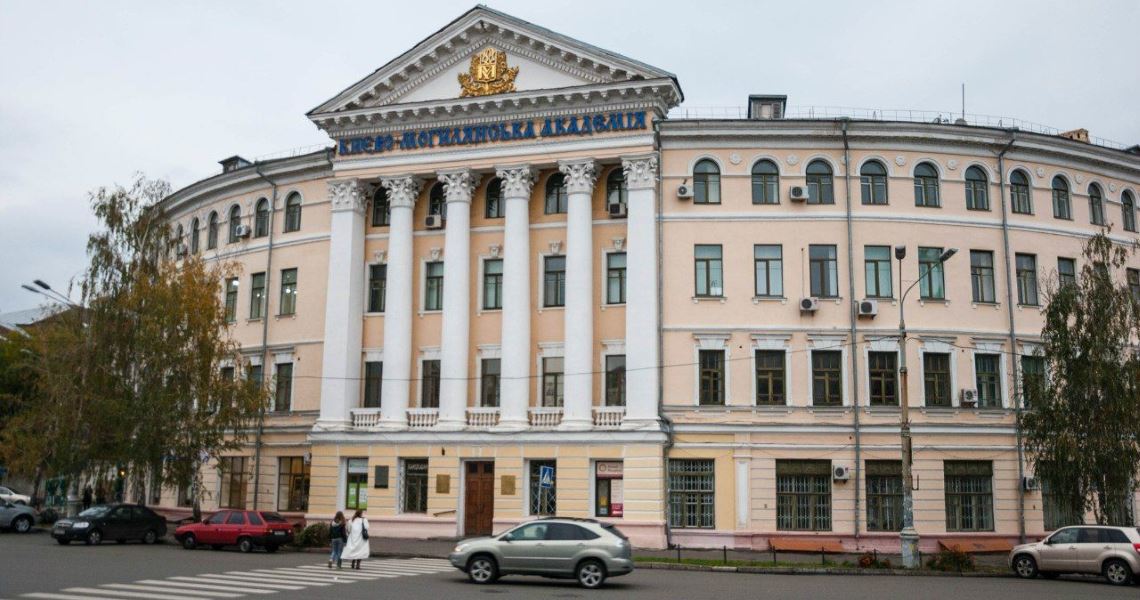Kyiv IT Market Research Reports and Industry Analysis
Dive into comprehensive insights on Kyiv’s thriving IT sector. Our in-depth market research reports and industry analysis offer valuable data for strategic decision-making. ↓

Despite the challenges of war since 2022, the capital’s tech industry has shown remarkable strength and adaptability. In 2023, Ukraine’s IT sector generated $6.7 billion in export revenue (42% of all service exports) and remained the country’s top export industry. As the national leader, Kyiv accounts for roughly 35% of Ukraine’s tech talent.
Investors and foreign partners are increasingly eyeing Kyiv’s IT market for its combination of high-caliber talent, competitive costs, and innovative drive, even as the city navigates the post-war recovery landscape.
Software Development Services in Kyiv
Major Software Engineering Hub
Kyiv is home to hundreds of software development companies, ranging from global IT service giants to boutique studios. Industry leaders with a large presence in Kyiv include SoftServe, EPAM, GlobalLogic, Luxoft, Ciklum, and Intellias, among others.

These firms deliver a full spectrum of services – web and mobile development, cloud engineering, AI & machine learning, UX/UI design, QA, and more – serving clients worldwide. Notably, Kyiv hosts large R&D centers for many multinational tech companies, reflecting its reputation as an Eastern European tech powerhouse.
Depth of Talent
Ukraine boasts one of Europe’s largest pools of certified IT professionals, and Kyiv is the single largest concentration of this talent. As of 2023, the Kyiv tech workforce exceeded 85,000 specialists, more than one-third of the nation’s IT talent.
This talent base is not only sizable but also highly skilled and well-educated, fed by Kyiv’s top technical universities (like Igor Sikorsky Kyiv Polytechnic Institute and Taras Shevchenko National University) which produce thousands of IT graduates annually. The workforce tends to have strong English proficiency and experience in Agile development, making Kyiv’s software engineers attractive to foreign clients.
Service Export Leadership
Companies in Kyiv have long focused on IT outsourcing or staffing services, contributing heavily to Ukraine’s export earnings. The United States, UK, Israel, and EU countries are major markets for Kyiv-based IT services.
Even in the hardship of 2023, Ukraine’s IT services exports only dipped by 8.5% – the first decline in years – highlighting how extraordinary the prior growth was. Kyiv’s firms helped stabilize the industry during wartime, keeping projects on track via remote work, relocating staff as needed, and utilizing backup infrastructure. This reliability under pressure further cements Kyiv’s reputation as a trusted outsourcing destination.
IT Outsourcing and Offshoring Trends
Global Outsourcing Rank
Ukraine is a recognized leader in IT outsourcing, and Kyiv is the country’s outsourcing epicenter. Recent studies rank Ukraine 2nd in Central and Eastern Europe for IT outsourcing and 7th globally for IT competitiveness, thanks in large part to Kyiv’s vendor base. Many Fortune 500 companies partner with Kyiv-based development teams for projects in fintech, e-commerce, gaming, and enterprise software. The city’s favorable mix of technical expertise and labor cost advantage (developers’ salaries are competitive relative to Western Europe or North America) continues to attract offshoring projects.
Post-2022 Adaptations
The war in 2022 prompted Kyiv’s IT companies to adapt quickly. Initially, some operations and staff were relocated to western Ukraine or neighboring countries for safety. However, by 2023 Kyiv’s tech hub remained substantial, retaining a 40.1% share of Ukraine’s IT industry revenue.

Firms invested in business continuity: equipping offices with generators, UPS backups, and even Starlink satellite internet to mitigate power outages and connectivity issues. By late 2022, city officials and ISPs in Kyiv were stockpiling batteries and generators to keep the internet running during blackouts. These measures paid off – client deliverables were largely uninterrupted, proving the resilience of Kyiv’s outsourcing sector under extreme conditions.
Offshore Diversification
A notable trend is geographical diversification by Kyiv-based IT companies. To reassure clients and expand their footprint, many firms have opened offices abroad (Poland, Spain, North America, etc.) while keeping their primary engineering teams in Kyiv. Some Ukrainian companies also expanded to new markets: for instance, Ukrainian tech firms have established presences in Europe, India, and Latin America to tap new talent and be closer to clients. This trend, accelerated by the war, positions Kyiv’s companies as more globally distributed players.
Nonetheless, development and project management often remain centered in Kyiv due to the city’s abundant expertise and leadership.
Startup Ecosystem and Innovation Hubs in Kyiv
Vibrant Startup Scene
Beyond outsourcing, Kyiv has a dynamic startup ecosystem that drives innovation.
The city is Ukraine’s undisputed startup capital, ranked 1st nationally and among the top 5 in Eastern Europe for startups. Globally, Kyiv climbed 16 spots in 2023 to around 75th place in the world for startup ecosystems, signaling impressive resilience. As of 2024, Ukraine hosts over 2,600 active startups, and Kyiv’s ecosystem value has tripled since 2020.

Successful Kyiv-born companies include Grammarly, GitLab, People.ai, Ajax Systems, Preply, Readdle, PeopleForce and others. In 2023, Creatio (a Kyiv-founded low-code platform) raised $200M at a $1.2B valuation, becoming Ukraine’s latest unicorn.
Innovation Hubs and Tech Parks
Kyiv nurtures startups through a network of incubators, accelerators, and co-working hubs.
UNIT.City, Ukraine’s first large innovation park, is located in Kyiv and provides office space and an ecosystem for 100+ startups and tech companies. Sprawling over a repurposed industrial site, UNIT.City has become a focal point for innovative entrepreneurship and R&D in the capital. Other hubs include Venture Hub, iHUB, 1991 Open Data Incubator, and Platforma Tech Park, all fostering collaboration among founders, developers, and investors.
The government-backed Ukrainian Startup Fund (USF) is headquartered in Kyiv and has provided 570+ grants to early-stage startups, fueling sectors like AI, edtech, and robotics.
Global Recognition & Support
Kyiv’s startups enjoy growing international support. In 2023–2024, Google launched a $5 million Ukraine Support Fund for startups, the EU’s Horizon Europe program opened an office in Kyiv to integrate Ukrainian innovators, and international venture accelerators (e.g., Techstars, Seedstars) ran programs for Ukrainian founders.
Ukraine joined the European Startup Nations Alliance in 2024, and the country now ranks 4th among 24 European nations for startup-friendly conditions, outperforming the EU average by 12%. Contributing factors include the ease of online business registration via Diia (in minutes) and accessible funding through USF. All these efforts have kept Kyiv’s startup scene active: 43% of Ukrainian startups still expected growth in 2023, and many pivoted to address new needs (cybersecurity, military-tech, rebuilding infrastructure).
Local IT Job Market and Talent Pool
Tech Workforce and Skills
Kyiv’s IT job market is one of the deepest in Eastern Europe. The capital region’s 85,000 tech specialists make up the largest tech talent pool in Ukraine. Nationwide, the IT workforce grew to 346,000 in 2023, even amid the war, with Kyiv as the main engine of this growth. The typical IT professional in Kyiv is around 28–32 years old, often multilingual, and highly educated.
Technical proficiency is high across popular stacks (Java, JavaScript, Python, C#, etc.), and there’s a strong engineering culture stemming from the city’s universities and decades of outsourcing experience.
Job Market Trends
Despite the war-driven turbulence, unemployment in Kyiv’s IT sector remains low due to continued demand. Many companies have implemented remote-first or hybrid work models, widening the candidate pool (some Kyiv firms now hire across Ukraine given remote setups). The average IT salary in Kyiv ranges widely by role – mid-level software engineers might earn around $2,000–$3,000 per month, which, while lower than Western markets, represents high local incomes and allows companies to operate cost-efficiently.
Over 50% of Ukrainian IT professionals are registered as private entrepreneurs (contractors), benefiting from a low 5% tax rate – a common model in Kyiv that provides flexibility for both talent and employers.
Recovery of Talent Base
The war initially led to outflow of some IT talent – by 2023, an estimated 20% of Ukrainian IT specialists were working from abroad (many temporarily in the EU).

However, by 2024 the brain drain has slowed. Industry reports show the IT sector’s staff outflow in 2024 was the lowest since the war began, with a net loss of only ~2,000 tech professionals, compared to 10,000 the year prior. Many Kyiv-based engineers who relocated to safer areas in 2022 have since returned or continued working for Kyiv companies remotely. The government has also begun developing programs to reverse brain drain and encourage tech talent to return once security improves.
Moreover, new graduates continue to enter the market, and intensive IT bootcamps (like GoIT, Mate Academy) in Kyiv retrain professionals from other fields into software development, expanding the talent pipeline.
Investment Landscape and Foreign Involvement
Venture Capital and Funding
Investment in Kyiv’s tech sector, while tempered by wartime risk, remains active. In 2023, Ukrainian tech companies attracted about $209 million in VC investments.
Kyiv startups accounted for the majority of these deals, spanning edtech, fintech, AI, and SaaS. Notable funding rounds included Preply (edtech marketplace) raising $70M, fintech startup Fintech Farm raising $22M, AR fashion platform DressX $15M, and several others. By early 2024, Horizon Capital (a leading regional fund based in Kyiv) closed a new $250M+ Growth Fund to invest in Ukrainian tech, and the Ukrainian Venture Capital Association launched a Fund-of-Funds targeting $300M to inject into local VCs. These initiatives signal optimism for scaling tech companies in Kyiv.
Foreign Direct Investment
Alongside venture deals, foreign tech companies continue to invest in Kyiv. Despite the conflict, global IT firms have largely retained their Ukrainian R&D centers. Some even expanded: for example, Grammarly (co-headquartered in Kyiv and San Francisco) grew its Kyiv team, and Sigma Software opened a new office in Kyiv in 2023.
Multinationals like Google, Microsoft, Samsung, Ring (Amazon) have significant engineering operations or acquisition targets in Kyiv. Furthermore, the post-war reconstruction agenda is attracting foreign interest in Ukraine’s digital infrastructure and cybersecurity, areas where Kyiv companies are poised to secure contracts. The city’s IT firms have also begun to win projects in defense-tech, working with Western partners to supply software and tech solutions to the Ukrainian military – a sector boosted by grant programs like Brave1 (a government-backed defense tech incubator).
Government Policies and Infrastructure
Diia City Regime
A major government initiative bolstering Kyiv’s IT sector is Diia.City, a special legal and tax framework launched in early 2022. Diia.City offers IT companies a favorable tax model (5% personal income tax for IT contractors, 9% distributed profit tax) and modern legal tools (like English law contracts, IP protections) to stimulate growth.

Adoption has exceeded expectations – by August 2024, 1,355 companies had registered under Diia.City (up from 807 at start of 2024). Many are headquartered in Kyiv, including big names like Grammarly, Rakuten Viber, Petcube, Intellias, and Netpeak, which all became Diia.City residents in 2023. These companies collectively employ over 62,000 specialists under the regime. For foreign investors, Diia.City provides transparency and stability (the low tax rates are fixed for 25 years by law), making Kyiv’s tech firms even more attractive partners or acquisition targets.
Digital Government & Support
Ukraine’s Ministry of Digital Transformation, based in Kyiv, plays a pivotal role in the IT industry’s success. Beyond Diia.City, the government has rolled out e-governance services (Diia app) that make it easy to register businesses online, file taxes, and even attract foreign clients through platforms like CodeUA (a matchmaking portal linking Ukrainian IT exporters with global businesses). In 2023, the Ministry also launched uResidency, an e-residency program allowing foreign entrepreneurs (from countries like the EU, India, Pakistan) to register a business in Ukraine remotely. These steps lower barriers for international collaboration with Kyiv’s IT sector.
Furthermore, the Horizon Europe office opened in Kyiv in late 2023, integrating Ukraine into EU R&D programs and potentially channeling research funding to Kyiv-based innovators.
Infrastructure and Connectivity
Kyiv enjoys relatively advanced infrastructure for an Eastern European capital. The city has widespread fiber-optic internet coverage, 4G/LTE mobile networks, and is piloting 5G. The power grid and internet infrastructure faced stress from missile attacks in late 2022, but rapid repairs and resilience measures kept the tech sector online.
Companies invested in backup generators, redundant ISPs, and Starlink terminals to guarantee uptime. As a result, even during peak crisis, most IT teams in Kyiv experienced only short disruptions. Now in 2024, infrastructure has stabilized, and rolling blackouts have ceased. Office real estate in Kyiv is plentiful and more affordable than pre-war, with many co-working spaces and tech campuses (Unit.City, Kreativ Hub, Lift99) available. Additionally, the government is planning smart-city upgrades and better public transit as part of Kyiv’s post-war reconstruction, which will further enhance the living and working environment for IT professionals.
Competitive Advantages of Kyiv’s IT Sector
Exceptional Talent at Scale
Kyiv’s foremost advantage is its large pool of highly skilled tech talent. With tens of thousands of engineers, designers, and data scientists, the city can staff projects of any size or domain. This talent often has deep expertise – whether it’s low-level systems programming or the latest AI/ML techniques – and a strong work ethic noted by many foreign clients.
The workforce’s education level and problem-solving ability is a key draw; Ukrainian developers frequently win international programming contests and hackathons, underscoring their capabilities. Moreover, labor costs are lower than in Western Europe or the US for comparable skill levels, meaning investors get more value for each dollar spent on development in Kyiv.

Productivity and Culture
Companies in Kyiv have a reputation for agility and dedication. Time zone alignment with Europe (and half-day overlap with the US) allows smooth communication for outsourcing. Culturally, Ukrainian tech teams tend to be proactive and creative, often contributing ideas rather than just following specifications. Many foreign partners appreciate Kyiv developers’ willingness to go the extra mile to meet deadlines – a trait that was on full display as teams kept projects running amidst wartime challenges.
The IT community in Kyiv is well-connected and continuously learning: meetups, tech conferences (like iForum, UNIT Conference), and strong online communities (e.g., DOU.ua forums) contribute to knowledge sharing and innovation.
Cost-Effective Business Environment
Office rents, salaries, and business services are cheaper than in EU capitals. Ukraine’s tax incentives for IT (via Diia.City or the 5% entrepreneur tax) further reduce cost overhead. For foreign companies, partnering with a Kyiv software firm or opening a captive R&D office can yield significant savings while maintaining quality. Additionally, language is less of a barrier – most IT professionals in Kyiv speak English, and many companies work exclusively in English for client communication and documentation. This combination of cost efficiency and professionalism gives Kyiv an edge over other outsourcing locations.
Innovation and Niche Expertise
Beyond cost and talent, Kyiv offers strong capabilities in certain niches. For example, Ukraine is known for cybersecurity, gaming, and AI – and Kyiv has specialized firms excelling in these fields. The city’s engineers have built complex solutions from computer vision systems to blockchain platforms. A growing number of Kyiv companies develop their own products (not just outsourcing), reflecting a shift toward an innovation-driven ecosystem. This means foreign investors can find not only service providers but also startups with unique IP and cutting-edge tech coming out of Kyiv’s labs.
The war itself accelerated expertise in areas like drone technology, encryption, and online services for government – knowledge that could be commercialized globally.
Challenges and Post-War Recovery
Security and Stability Risks
The primary challenge in Kyiv’s IT sector remains the ongoing war and its uncertainties. While Kyiv is much safer now than in early 2022, periodic air raid alerts and the remote threat of attacks persist. This can be a concern for foreign stakeholders. Companies address it with contingency plans (relocating staff on short notice, maintaining mirror infrastructure in Western Ukraine or cloud).
Martial law and travel restrictions for Ukrainian men have also created hurdles – tech professionals often cannot travel abroad easily for client meetings or conferences. Additionally, mobilization (the military draft) poses a risk to talent continuity; currently very few IT specialists are exempt from conscription, causing some senior engineers to leave the country to avoid uncertainty.
Investors must account for these factors, although many have found that practical impact on project delivery has been minimal due to mitigations in place.
Brain Drain and Competition
Another post-war concern is the brain drain – the exodus of tech talent to other countries. Over 120,000 Ukrainian IT workers left due to the war (temporarily or permanently), forming tech diaspora communities in Poland, Germany, Canada, and elsewhere. Some may not return quickly, especially given high European salaries. This intensifies competition for skilled developers in Kyiv, as companies vie to keep their best staff. At the same time, Kyiv firms now compete more globally – for clients and talent – against other emerging tech hubs (Poland, Romania, India, Latin America).
They must continually market Kyiv’s advantages to ensure the city stays on outsourcing shortlists despite the war’s shadow.
Economic and Infrastructure Challenges
Kyiv’s broader economic recovery is a work in progress. Inflation and currency fluctuations have impacted salaries and budgets (though the hryvnia has been relatively stable since 2023). Rebuilding infrastructure and office spaces damaged in 2022 is largely done, but ongoing drone attacks mean a need for constant vigilance and repairs. The government’s finances are strained, potentially affecting future tax policy (though IT has so far been protected as a strategic sector).
Moreover, attracting significant foreign direct investment into Ukraine’s tech (like building new data centers or large campuses in Kyiv) might wait until full peace is achieved. Until then, growth will rely on the grit of local entrepreneurs and support from allies.
Recovery and Growth Outlook
Despite challenges, the outlook for Kyiv’s IT sector is optimistic. The past year demonstrated that the industry can not only survive but adapt and thrive under adversity. Many companies report that productivity is back to or even higher than pre-war levels, thanks to streamlined operations and a sense of purpose uniting teams. Post-2022, a surge of innovative projects has emerged – from military-tech startups (over 240 defense-tech firms have sprung up, many in Kyiv) to civil society IT projects aiding reconstruction.
The war effort accelerated public-private cooperation; for instance, local IT firms work on digital systems for humanitarian aid, infrastructure monitoring, and cyber defense, often with government collaboration. These innovations could spin off new commercial products and companies in the coming years.
Support and Opportunities
International support continues to open opportunities. The EU, U.S., and other partners are keen to integrate Ukraine’s economy, especially its vibrant IT sector, into global value chains. Programs in Kyiv offer mentoring, market access, and grants to tech businesses. As reconstruction picks up, Kyiv’s IT companies will play a key role in modernizing infrastructure (smart energy grids, digital public services, e-health systems).
This unique moment – rebuilding a European capital with state-of-the-art technology – presents investment opportunities not seen elsewhere. Foreign customers and investors who partner with Kyiv’s tech sector now can both contribute to and benefit from the city’s revival.
Potential for Collaboration
For investors and foreign clients, Kyiv’s IT sector in 2025 presents a blend of high reward and managed risk. The city offers world-class software development services, a flourishing startup scene, and cost advantages that are hard to beat in Europe.
Kyiv’s tech community has proven its resilience by maintaining growth and innovation through the toughest of times. While challenges persist in the short term, the long-term potential of Kyiv as an IT powerhouse is undeniable – bolstered by government incentives, international goodwill, and the indomitable spirit of its tech talent. Entering Kyiv’s IT market now, with due diligence and local partners, could mean not just strong business returns but also a stake in the inspiring story of a tech ecosystem rebuilding and transforming a nation.
Note: We’ve spent a lot of time and effort creating this research. If you intend to share or make use of it in any way, we kindly ask that you include a backlink to our website – EchoGlobal.


